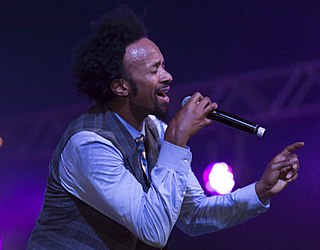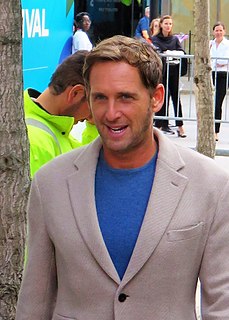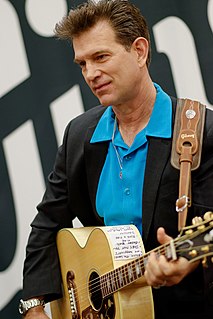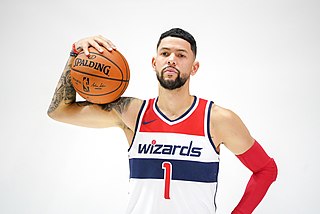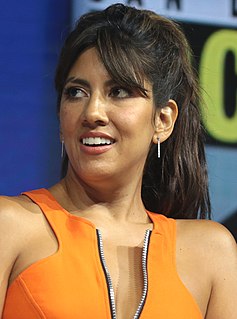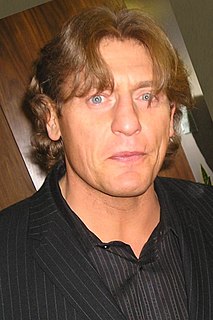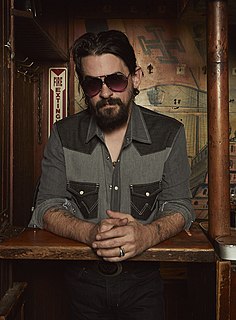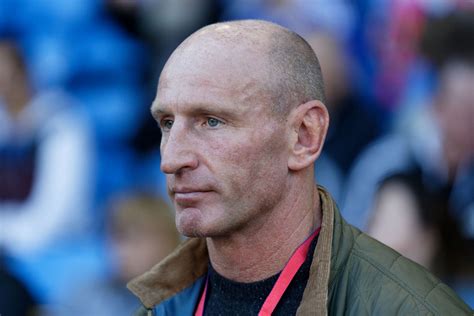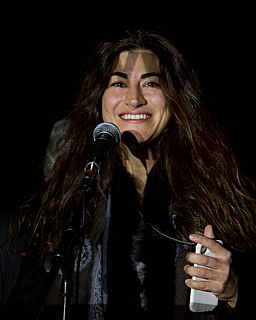A Quote by Fantastic Negrito
When I look into the audience, and I just know we understand each other, I can see their faces, and they know what I'm talking about. I feel like I've helped. Everything I've been through in my life, it helps people. Then that makes it worth it.
Related Quotes
Even if someone doesn't look like you or you don't know people like this in your real life, you get to know them and you get to see their humanity and you get to empathize with them. Our hope is that through empathy that can spark change. We hope people start talking to each other and our show sparks conversation because we need to start talking to each other, not at each other.
I know for myself my big, long friendships they don't have the same problems any more, but they also-when you get together you often times just have a drink and watch football together. You're not really talking about everything so much the same way. You just need to be around each other, and yet you can look at each other and so much is said just between those minutiae- it's totally subtle is really what it is. I felt like that, you know, a life that's been so totally dramatic then becomes beauty in the fact that it's just so small.
To achieve the intimacy between performer and audience in storytelling, I feel like I have to let the audience in on my emotional state, not just, "Here's a story I'm going to tell by rote, and you're just going to listen to it, because I'm such a wonderfully entertaining fellow." It's the idea of sharing enough of myself that it's not just all about, "Look at me, look at me." There's an element to it of, "You understand what I'm talking about, right? You've been in this place that I've been in," which makes it a richer experience.
When I play it I look out and see people hold on to each other and dance or just couples leaning into each other and kiss. And I'll go: 'You know, I could have worked hard at school and been a dentist. But I'm so glad I didn't.' Because when I look out and see that I feel like the Pied Piper of love.
When you label somebody and put them in a box, then you put the lid on the box, and you just never look inside again. I think it's much more interesting for human beings to look at each other's stories and see each other. Really see each other and then see themselves through other people's stories. That's where you start to break down stereotypes.
I just really care about what people see. I want them to know that I'm working hard for this. The artists that I look up to like, you know, Michael, Prince, James Brown. You watch them and you understand that they're paying attention to the details of their art. And they care so much about what they're wearing, about how they're moving, about how they're making the audience feel. They're not phoning it in. They're going up there to murder anybody that performs after them or performs before them. That's what I've watched my whole life and admired.
Sometimes, you know how good certain people are and then you actually get to see them have the kind of matches you know they can have in front of an audience that isn't used to seeing that. Then, in a few minutes the audience is on the edge of their seats, just through the sheer craftsmanship of their abilities.
I feel like a lot of the stuff coming out right now just feels really inauthentic to me. But apparently, people don't seem to see through it. And this makes me sound bitter, but it's just my perspective. I'm not bitter. I just feel like there's a lot of stuff that doesn't feel like it's coming from a place of any sort of integrity. It just doesn't feel like it's coming from the heart, basically. It just feels like it's being produced because people know it's a formula that will work, or it's easily digestible and fun to look at.
What I react against in other people's work, as a filmgoer, is when I see something in a movie that I feel is supposed to make me feel emotional, but I don't believe the filmmaker shares that emotion. They just think the audience will. And I think you can feel that separation. So any time I find myself writing something that I don't really respond to, but I'm telling myself, 'Oh yes, but the audience is going to like this,' then I know I'm on the wrong track and I just throw it out.
As the world is getting smaller, it becomes more and more important that we learn each other's dance moves, that we meet each other, we get to know each other, we are able to figure out a way to cross borders, to understand each other, to understand people's hopes and dreams, what makes them laugh and cry.
After my husband, Dave, died, I called my friend Adam, a psychologist who studies how people find meaning in our lives, and I asked him what, if anything, I could do to help myself and my kids get through this. We started talking about resilience, then reading about it, then talking to other people who had gotten through grief and other huge challenges. In time, those conversations and that research helped me heal.
